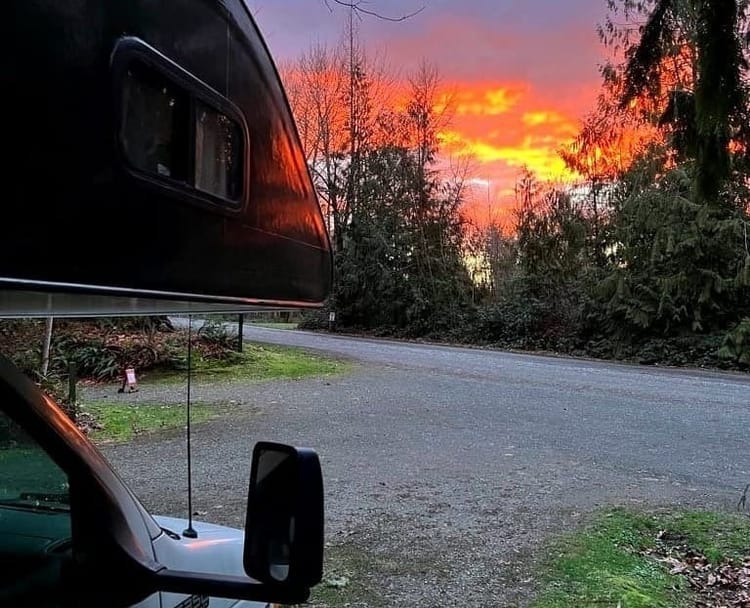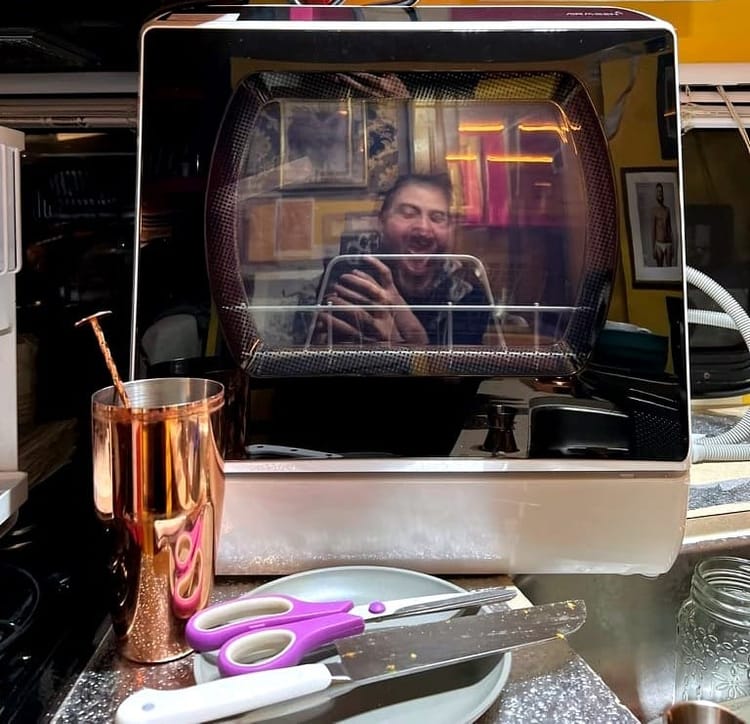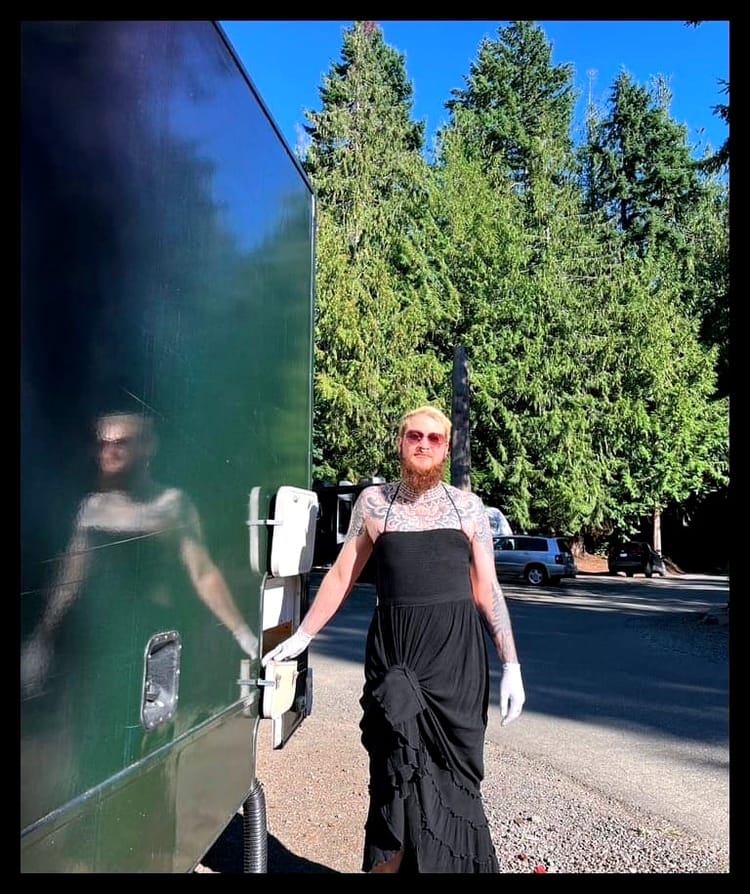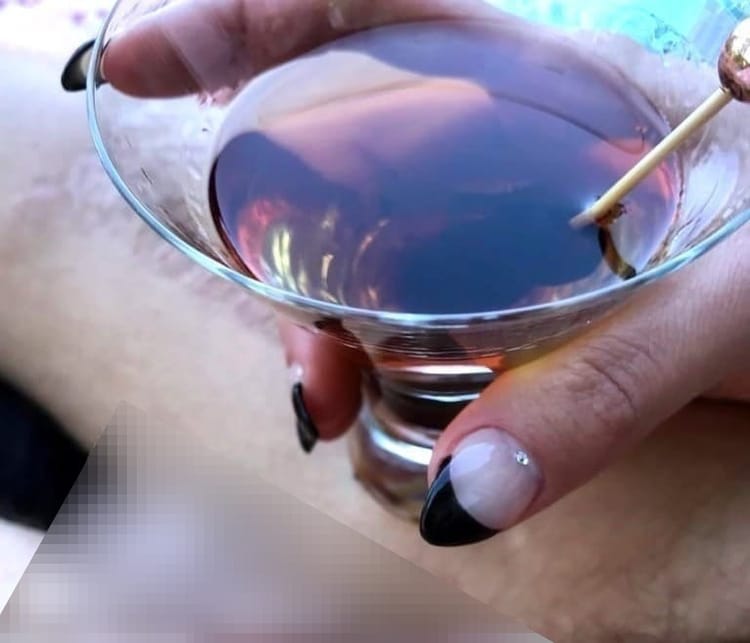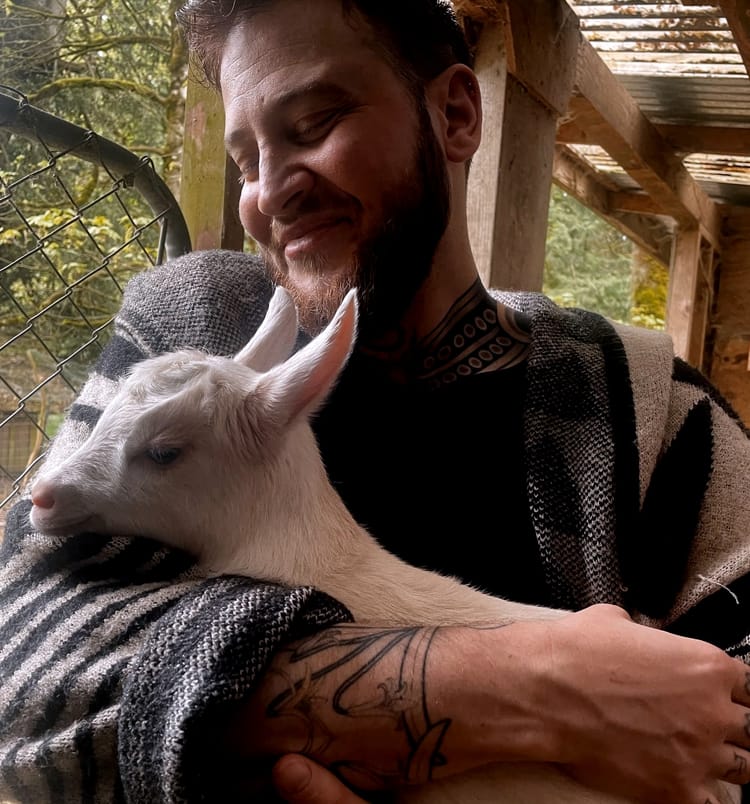Road Trip to Non-Commodification
Listen to an audio version of this story below.
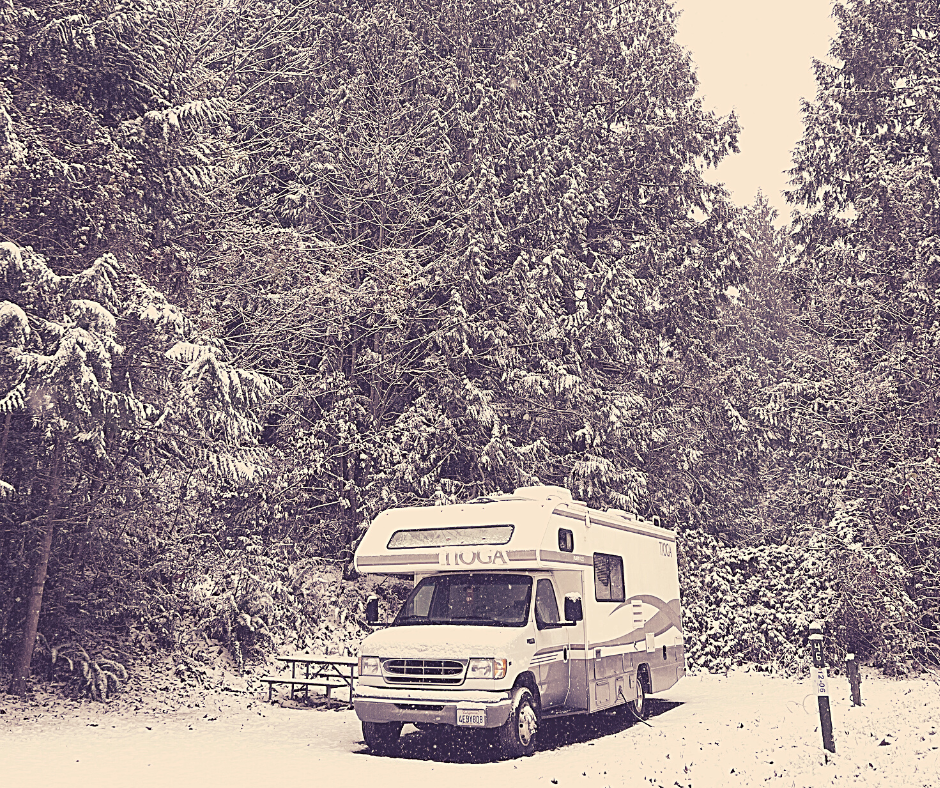
“To me,” I said, looking squarely into the blue eyes of a man who’d trafficked me, “you are inherently worthy.”
I didn’t know then, more than five years ago now, why I said it. I hadn’t planned on saying it; what I’d done, with no speeches prepared, was asked him to meet me in a public place so I could tell him I remembered the decade of sexual abuse, and after I’d refused to hug him and sat down on a park bench and taken a deep breath, that’s what came out.
It strikes me now as a heroic act of compassion, my acknowledgement that he must have felt terribly unworthy to have done, to have been able to do, what he did. My being able to acknowledge that he’d acted from a place of pain even then, relatively early in my treatment, shows me now how hard I must have been working from the get. I meant it, whether he was able to receive it or not—and indeed, he looked at me blankly and said, with the tone one uses to respond to someone who’s being weird, “O-kay…”
Now, it strikes me also as a manifesto: He was my dad, after all, which meant I came from him, by blood and by behavioral training, and while he had been capable of raping and selling me, I would never be able to treat another person like a non-person. Not even the person who’d done it to me.
This is what surfaced when I woke up recently in the pre-dawn dark in my house, which is also a truck, the morning after a landlord did not treat me like an extractable, mineable resource for the first time since I started renting more than twenty years ago.
Hello, this is a roundabout way of saying, from the evergreen state of Washington.
My first week living in an RV, I met three queers at a park in Santa Cruz, each of whom spontaneously recommended Seattle for its extreme queerness, a strong recommendation coming from Bay Area queers. One of those queers also referred me to Thousand Trails, a national network of RV parks that members can stay in for two weeks at a time, then spend a week out, then go back in for two weeks, ad infinitum, for an annual fee of $500.
“What?” I said, as all my friends said, when I relayed this, in turn. (For the same referral rate, call Stacy. 1-877-350-7612.)
Each membership is for a region of the country; others can be added for $90. The zone I was in contained 19 campgrounds in Arizona, California, and Nevada. And so, after three nights sleeping parked on the street and a week of renting spots among Santa Cruz woods and beaches in a way that would not be financially sustainable long term, I moved to a park with laundry and a pool and a sea of RVs spread out in the Central California sunshine.
My first day there, I looked up out of my back window from where I was lying in the squish, and I saw a giant pride flag hanging in the doorway of a shiny white trailer a few spots down. When I walked over, the owner gave me the names of three apps with places to stay in the required 7 days out (Campendium, Recreation.gov, Free Roam) if I just wanted to keep coming back to this camp, making my rent—including power and water and sewer and trash—$500 a year.
It was an hour, as well, from a hot spring, which everyone knows is my favorite kind of place.
I could stay here, I thought, having hooked up to all the utilities and checked out the amenities and settled into the peaceful okayness of it. It was fine. I was fine.
“What’s nice about the place you are right now?” a friend asked, calling from the county where I’d moved out of my last apartment. “Well,” I said, thinking, “I’m allowed to be here.” I recognized as it came out of my mouth that it was a fairly low bar, a refugee’s standard for a good place to stay. That wasn’t nearly the end of it. The people were lovely—almost absurdly so. “Do you want some candy?” the guy working the check-in gate one day asked me, and when I asked what kind of candy, picturing a dusty little bag of Skittles, he handed me a large gift box of Ghirardelli chocolates, wrapped with ribbon. One morning when I came back from the laundry room, there was a coat hung in the handle of my door, a fleece hoodie so giant and bonkers—white, interspersed with crudely rendered bears and pine trees—that it was almost high fashion, and when I picked it up and started looking around confusedly the woman in the next spot over leaned out her door and said, “I’m giving that to you. You’ll need a warm jacket, and I have lots of jackets.”
But I didn’t know anyone there. I could get to know people there, but by design, there’s a lack of continuity in the community, and a shifting sea of mostly straight and so far entirely cis people wasn’t, I realized, the community I most wanted to live in. It was too far for any of my Bay Area friends to pop over easily, let alone frequently.
“This is the queerest and most trans place I’ve ever been,” said yet another homo—and a trans one—when we caught up by phone one day. We’d met only a few times when we both lived in the San Francisco North Bay, but he’d since moved to Seattle. As it happens, I’d bought the upgraded Thousand Trails pass that granted access to another 100 “destination” campgrounds near tourist hot spots across the country for an extra $330, and one of them was half an hour from his house.
I woke up later that night, walked out my door, and walked up into the V in a tree trunk between two maples, where I stood in the dark, considering. By the next morning, I knew I was going to drive north.
“We started this farm because we thought people needed produce,” one of my new landlords said. “It turns out what everyone really needs is a place to park.”
“DO YOU HAVE chickens?” the potential landlord asked on the phone. I’d been staying at the campground outside Seattle—this one had not just a pool and a hot tub but also a sauna, which I trekked to through surprising and heavy snow—for a week, which meant that in one more week, I’d have to leave for seven days. I’d started writing emails to farmers, found through WWOOF or creative googling, because they had land, and I figured someone would take money to let me park on it for these interims. But I couldn’t have fathomed I was going to find what I did.

